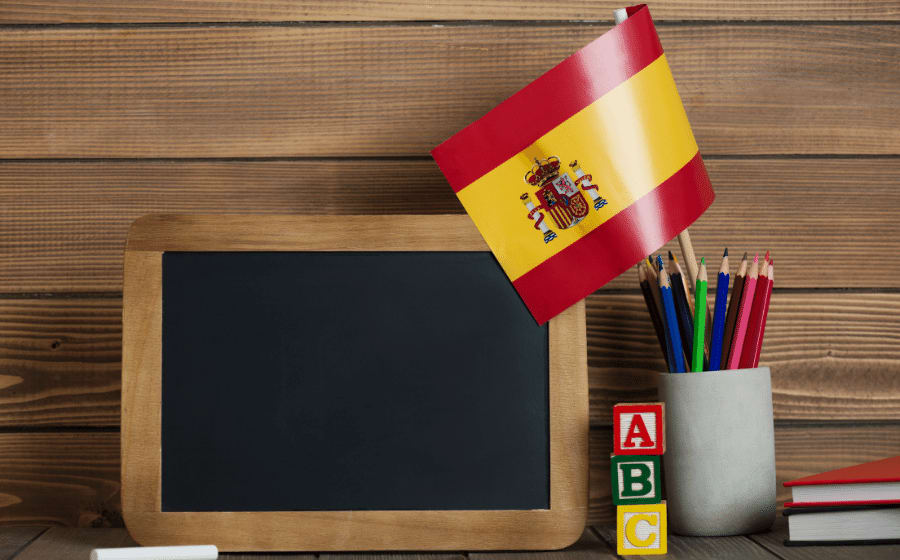Is Education Free in Spain? ALL About Private and Public Studies
November 4, 2022
Win a FREE Trip to Spain!
Exciting Announcement! For the first time, we're thrilled to offer exclusive trips to the heart of Spain - an experience like no other. This isn't your typical tourist journey; it's a unique opportunity to immerse yourself in authentic Spanish culture, alongside real locals and our passionate team.
But there's more! Simply by requesting information about this amazing trip, you'll be entered into a special draw to win a Fully Paid Trip to Spain for Two. And that's not all - everyone who inquires will receive an exclusive bonus gift, valued at $500, available only now.
Ready to Discover the Real Spain?Click Here ↑ to Request Information & Enter the Draw!
Rumor has it that many European countries provide their citizens with free and high-quality Education, which can be pretty shocking to foreigners since school/college tuition and fees represent some of the highest costs a family has to bear.
In this article, we’ll understand whether Education is free in Spain or not, and the costs of having a child in a School in Spain. I’ll also explain the difference between the different school centers available for Spanish citizens, their fees, and their pros and cons.
So, let’s begin our master class by answering your top concerns first!
Table of Contents ▼ ▶
Is Education Free in Spain for Spaniards?
Education in Spain is compulsory and free for all people. By law, studies are financed by the State and are mandatory between the ages of 6 and 16. However, books, school support classes, extracurricular courses, and the dining room are not free. Either they depend on grants and scholarships, or families pay for them.
Going into the details, and more specifically, the second cycle of early childhood education (3 to 6 years) is offered free of charge, although not it is not mandatory, by the Ministry of Education and the different Spanish autonomous communities. On the other hand, high school is not part of compulsory education. These two academic years, followed by University and Technical Studies, are optional and free, meaning that students must pay for them.
Freedom of education is a right not only included in the Spanish Constitution but also in the European Convention on Human Rights. If you want to learn more about the educational system in Spain, the periods it comprises, the ages, and each stage, you should read the following article for greater understanding.
Is Education Free in Spain for EU Citizens?
Education in Spain is not free for European Union Students. However, you are entitled to the same grants to cover course fees as Spaniards, and you can’t be required to pay higher course fees.You can study in Spain without requesting authorization and a time limit as a European citizen. However, depending on your case, you will need to meet some requirements, such as homologating studies, accrediting knowledge of the language (Spanish or the co-official language in those communities that have it), or taking specific admission tests.
Just so you can get an idea, international students can study in Spain for between €800 and €2,500 per year at public institutions. Fees are charged per credit and can be higher at university and higher studies. There are also grants to study abroad and maintenance subsidies you can get from your home country, which are up to your national authorities. But, if you’re wondering about financial support, scholarships, and loans, you must know that they depend on different criteria.
Studying abroad in Spain is one of the best decisions many international students have made. We have multiple prestigious universities and some of the best college education in Europe. Find out in this post:
Top 10 Universities in Spain for an outstanding College Experience
Still, the great news is that, According to Your Europe, as an EU citizen, you are entitled to a maintenance grant on the same conditions as Spaniards, even if you are not a national but have been living there for five years or more. By law, EU governments must give the same support to nationals of other EU countries who are permanent residents as they provide it to their citizens.
Is Education Free in Spain for Foreigners?
Education in Spain is not free for foreigners. However, all foreign minors and resident foreigners have the right to access the compulsory and post-compulsory education at any educational stage and obtain scholarships or grants under the same conditions as Spaniards. Still, they must follow a series of procedures and meet some requirements that vary depending on their specific circumstances, such as their country of origin, the academic stage to join, and the student’s administrative situation.
In simpler words, if you are a migrant or refugee who wishes to get an education in Spain, you can access any level of the Spanish education system as long as you meet the academic access requirements.
On the other hand, students over 18 years of age who wish to get the Graduate in Compulsory Secondary Education degree need to pass an examination test to get the degree after they meet any of the following requirements:
- Have Spanish nationality and reside in Spain.
- Not having Spanish nationality and residing in Spain.
- Have Spanish nationality and reside temporarily or habitually abroad.
- Not having Spanish nationality, residing abroad, and having already completed regulated education in the Spanish educational system.
All of this might sound too much. Still, it is a lot easier to comprehend after you’ve understood how the system works at every stage. I insist you can take advantage of this article to get familiar with the context and background situation.
Private, Public, and Concerted Schools Differences and Costs
- Public Schools
In Public Education, neither tuition nor fees are paid. Therefore Spanish families assume less money (which is one of the main differences between the others). However, the rest of the expenses, for example, dining room, activities, and books, are not free and these costs run by the families’ budget, but there are scholarships for reducing schooling costs so that the average annual expenditure per children is even lower compared to private and concerted schools.
How do they work? Public Schools have public funding and administration, so the teaching staff members are civil servants who have obtained their place after completing an opposition, guaranteeing secular education to whoever desires.
The bad side? It is not always possible to choose the exact school center you want although they admit all students. The allocation depends on specific criteria such as closeness to their living houses, which can sometimes cause the quality of teaching and the atmosphere in the classroom to rely on the neighborhood or community where they’re located.
- Private Schools
A private school is a company and organization whose financing comes from tuition and parents’ financing. These have total freedom to decide who can access and under what conditions and requirements while always meeting the corresponding education law.
Spanish families have to pay for tuition and fees in private schools like in any other private institution. They are the most expensive option but have many advantages, such as the freedom to choose the school center that perfectly suits the family’s needs and values and the ability to enjoy personalized education. These institutions make significant yearly efforts to improve innovation rankings while focusing on languages and international projection to provide better education for Spanish children. Moreover, sports and extracurricular activities are much more varied and different in a private school than in a concerted one in general.
- Concerted Schools
Concerted schools are like a hybrid between public and private education since they are administered as private institutions but are mainly publicly financed. Teachers are chosen the same way as in private schools (through selection processes like private companies) but without parents having to bear the entire cost of education since much of it is covered by the government.
Concerted schools are not free. Families need to pay monthly fees and assume the extra costs, which are usually lower than the private ones but still more expensive than in public schools. The concerted institutions usually add value services for most Spanish families, such as extended hours, transportation, and medical service compared to the public ones (although the total annual expenditure of the public ones is the lowest of all). At the same time, private school offers are usually more extensive and exclusive.
According to an official source, El Economista, Spanish families in the academic year 2019/2020 spent an average of 664 euros on public education per student, 1,252 euros on concerted centers, and 4,656 euros in private institutions. And according to a survey made by The Spanish Organization of Consumers and Users, this is the annual cost of education that Spanish families have to carry:
| Education | Public School | Private School | Concerted School |
|---|---|---|---|
| Early Childhood | €1,141 | €6,281 | €2,558 |
| Primary Education | €1,332 | €6,105 | €2,767 |
| Secondary Education | €995 | €6,926 | €2,463 |
| High School | €948 | €5,529 | €2,380 |
In short, Spanish Education is only partially free since fees and costs are necessary for enrolling children in schools. What differentiates a public, private and concerted school is its type of administration and financing, and another is the annual financial cost for Spanish families. Nevertheless, it is crucial to mention that each institution has its own values and functioning.










